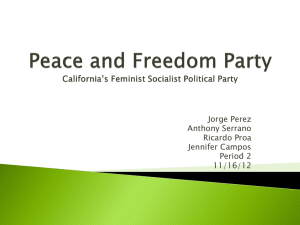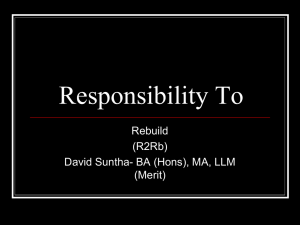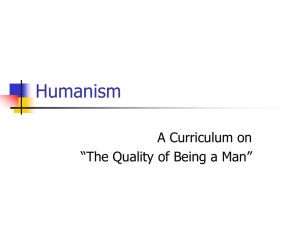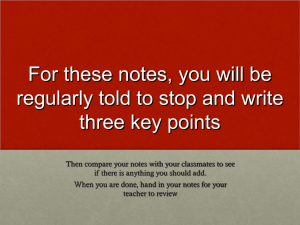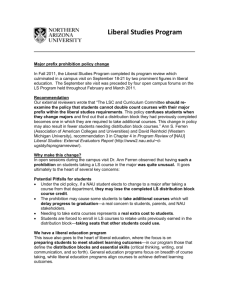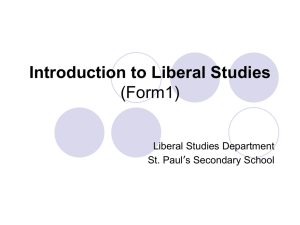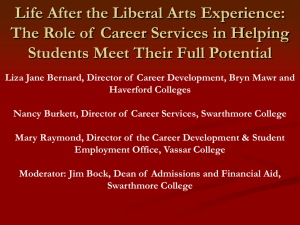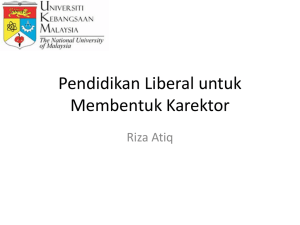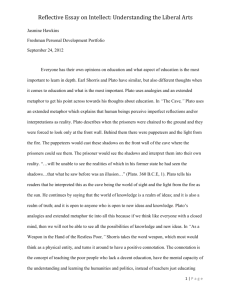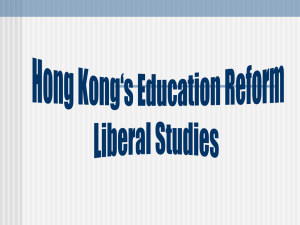Holmes Chapters 3-4
advertisement
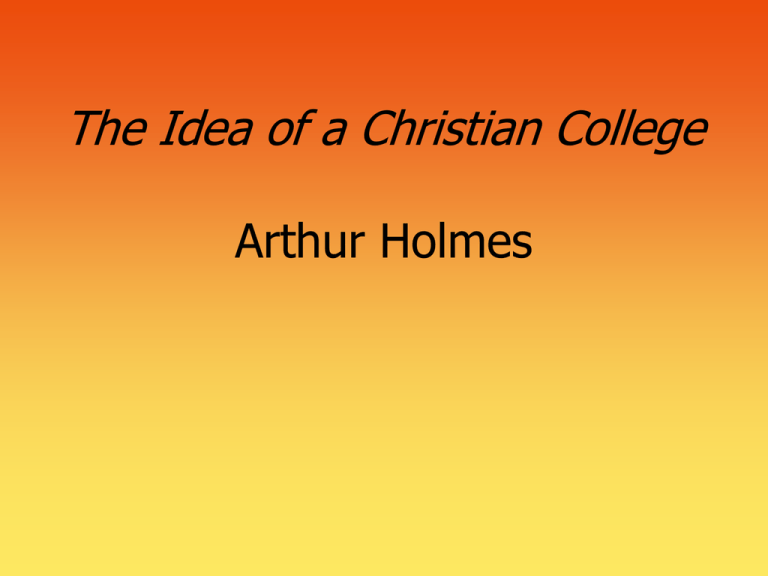
The Idea of a Christian College Arthur Holmes Chapter 3: Liberal Arts: What and Why? The wrong question What do philosophy, history, art, and literature (e.g., liberal arts) have to do with real life? What can I do with it? 3 The right question What will philosophy, history, art, and literature (e.g., liberal arts) do to me? 4 The goal of education Prepare us for a job? No. Vocational training = job preparation Falls into the productivity principle trap (the idea that worth is measured by productivity) Prepare us to adapt, think, and be creative? YES! 5 What is a liberal arts education today? “A broad, general education that ranges across the natural sciences, the social sciences, and the humanities” (p. 26) The liberal arts are the arts “appropriate to persons as persons, rather than to the specific function of a worker or a professional or even a scholar” (p. 27) 6 John Henry Newman’s distinction 19th c.: The Idea of a University The liberal arts versus useful arts Intrinsic versus instrumental value 7 What is a person and how should that shape education? 1. A reflective, thinking being 2. A valuing being 3. A responsible agent 8 What is a person and how should that shape education? 1. A reflective, thinking being Goal: “ignite our native inquisitiveness” (p. 30) Implications: 1. interdisciplinary approaches are vital 2. theoretical questions are necessary 3. worldviews must be examined and shaped 9 Bertrand Russell on Education 2 purposes of education 1. form the mind 2. Train the citizen 10 What is a person and how should that shape education? 2. A valuing being who judges & acts Goal: “teach values as well as facts” (p. 32) Implications: 1. expose students to ethics, social problems, aesthetics, and other areas of value 2. expose students to the logical structure of value judgments 11 What is a person and how should that shape education? 3. A responsible agent Goal: prepare students to be responsible stewards in all of life (p. 32) Implications: 1. provide a critical evaluation of the past 2. prepare for creative participation in the future 12 What about the physical self? Evaluate this statement: “excessive emphasis on athletics without literature or philosophy produces a pretty uncivilized type with no use for reasoned conviction, whose life is one of clumsy ignorance unrelieved by grace or beauty; whereas a purely academic life without athletic training leaves one with little backbone” (p. 34, summary of Plato) 13 What about the social self? The liberal arts education should include the following: Self-understanding Understanding of other people Understanding of social institutions and processes 14 What about specialists? Evaluate this statement: “The liberal arts college has no business producing narrow specialists who see no further than their laboratory, have no larger sense of responsibility, and little understanding of science as an essentially human cultural undertaking” (p. 35) 15 Chapter 4: Liberal Arts as Career Preparation What students don’t know when they enter college . . . Most students don’t yet know . . . themselves their abilities Their options ⅔ of students change their career plans during college Most college graduates change jobs at least 1 in the first 5 years after college 17 Liberal arts = career preparation Career mobility is the norm today Vocational training that focuses on particular job information and skills will likely be soon outmoded Liberal arts offers Larger understandings More transferable skills Richer personal qualities Lasting values 18 The Benefits of a Liberal Arts education Attitude toward work Not Greek aristocratic, anti-work attitude Work is part of stewardship in service to others Breadth of education A well-rounded background Cognitive and communication skills The ability to think and communicate Imagination Fresh insights and new ways of looking at things Value development Firm values; a reformer’s approach to life 19 Specialization vs liberalization Albert Speer, Hitler’s minister of munitions: It is only in the study of history, philosophy, and the like that “fundamental questions are asked— what is a person, what is a good society, what are the proper ends of civilization, and so on” (p. 40) Germany education was specialization (= knowledge without adequate foundations) 20 Career preparation = life preparation “The same understandings, skills, and values that constitute good career preparation make good life preparation as well” (p. 41) Family Life Friendships Community service Church involvement The use of leisure 21 But what about vocation? 1. vocational courses should be minimized rather than emphasized 2. most college grads will need additional training for jobs in our highly specialized and technological society 3. undergrad colleges can build bridges to occupations within liberal arts courses 22 Wrap up: How is liberal education good career preparation? 23 Coming up . . . October 18: Holmes, Chapters 5,7,9 On the horizon: 1. Exam 2 on 10/25 2. PLP due 11/1 24


